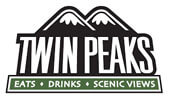RECRUITMENT 101: WHAT A RECRUITER DOES
I took this article in its entirety from Energy Resourcing (https://energyresourcing.com/blog/what-a-recruiter-does/). While I do agree with most of the article, I have highlighted where I differ.
The Business Directory definition of a recruiter is: An individual who works to fill job openings in businesses or organizations. Recruiters will work from resumes or by actively soliciting individuals qualified for positions. A recruiter’s job includes reviewing candidate’s job experiences, negotiating salaries, and placing candidates in agreeable employment positions. Recruiters typically receive a fee from the hiring employers.
A recruiter does more than just find people for jobs. They also help people prepare for interviews, assist with resumes, cover letters, manage salary negotiation, advise clients on employment issues, stay up to date with labour laws, as well as share market and industry knowledge.
They may work for a staffing agency, work for an agency placed internally with a client, or do corporate recruitment. They might work on commission or retainer. They may be a headhunter, or have people coming to them to look for roles. A recruiter can work in a number of different capacities, but how they work is pretty similar in any role.
Who does a recruiter work for, and how does a recruiter get paid?
A recruiter is primarily working for their client, the employer. This can be hard for some people to understand as a recruiter needs to look out for the best interests of both their clients and candidates. But at the end of the day their client is the one with a position to fill, and a recruiter will be looking for the best person that fits their criteria.
As recruiters are working for a company, the company is the one who will be paying their fees. Fees differ between agencies, industries, and types of roles. They are usually calculated as a dollar value or % of a candidate’s first years’ salary or hourly wage. A recruiter only gets paid if they find the perfect person for the role; and remember, the client always makes the final decision on who they hire.
What is important for you to know is that a candidate’s salary should never be affected by that fee. A salary range for a position is set based on a company’s salary structure for that role. A recruiter’s fee is a completely separate entity from that salary range.
Process a recruiter follows
Though each recruiter and staffing agency will operate slightly differently, generally they all follow a very similar process.
Open position
The first step of this process occurs when a client calls with an open position that they need help filling. Recruiters will then get all the details they need to start working on the role. This involves more than just getting a job description. They will do a deep dive and probe for things like salary range, interview questions, any benefits to working in the role/for the company, vacation compensation, reason the role is open, management styles, soft and hard skills needed, start date, and even advancement opportunities.
Posting a job
Recruiters, as a general rule, post all of their open jobs on their company website as well as any job boards that are relevant to that role. Positions may also be advertised on social media sites. Recruiters will also reach out to their network to find out if any great candidates are looking for work at the moment. [NOTE: I post less than 25% of my open jobs on my website or on a recruiting website. I do this because you, as an employer, are probably doing the same thing so if we are fishing in the same pond, I am not bringing any value to you.]
Finding great candidates
The average job posting gets 250 applications, and those applications can start coming in within 5 minutes of the position has been posted online! A recruiter needs to review all of these resumes to identify the candidates that have the hard and soft skills their clients are looking for. Once they do, they will reach out for telephone or in-person interviews, or a combination of both. [NOTE: This ratio of 250:1 is high. My ratio has been as low as 3:1 based on how I conduct my search for talent.]
These interviews are critical because presenting an under qualified candidate to a client could potentially cause a recruiter to lose that client.
A good interview also provides an opportunity for a recruiter to find out all those things that aren’t on a resume. Sometimes it is these hidden skills and personality traits that are so important to prospective employers and make the difference between a candidate that gets hired, and one that is passed over.
Once the recruiter has ascertained that a candidate matches the experience and personality that a Client needs, AND that the candidate is still interested in the position, they will present that candidate to the client.
Presenting candidates
Recruiters don’t just email resumes to clients and hope that something sticks. They will talk to their clients about each candidate, and “bring them to life” off the paper through discussing their work experiences, career aspirations, and why they will be a match with the client’s needs. Recruiters know that employers hire for both hard and soft skills, and will make sure to express both to their clients.
Client interview stage
Clients are busy people, often managing large teams, and their schedules get filled up quick. A great recruiter knows this and schedules interview slots in advance so they match the schedules for all involved. This helps keep the hiring process as short and succinct as possible. No client wants to miss out on an exceptional candidate because they couldn’t be interviewed for the next month.
After the interview, the recruiter will collect feedback from both the candidate and client. Recruiters want to make sure they are able to give their candidates as much feedback as possible – good or bad – so they know where they stand.
Job offer
When a job offer is extended to a candidate, a recruiter will often be there as a sounding board for both sides. They will facilitate any negotiations and strive to keep this process seamless. This also entails letting unsuccessful candidates know that a role has been filled. Recruiters may be involved in the onboarding process and can provide the first day details that candidates will need.
Stay in contact and recommend top performers
Recruiters will follow up with clients and candidates on their first day, end of first month, and at the end of a probation period. Should any small problems come up in this time, both clients and candidates can be hesitant to voice any concerns as theirs is a new and fragile relationship. A recruiter stands outside of that relationship and can be a good mediator if needed. Little issues can be easily overcome, rather than becoming something that leads to a resignation. [NOTE: I normally stay in touch with my placed candidates for the first year. A bad hire does not help anyone and as a recruiter, I’m the one caught in the middle. My ultimate goal is to have a happy client and a happy candidate. In the end, my client is most important because my client pays my fee and provides additional roles for me to fill.]
Once a candidate has been placed in a role, they should keep in contact with their recruiter. You never know when situations may change and you will need their assistance again. Recruiters are always looking for great people and also are happy to have you recommend top-performers to them.
A recruiters job is rarely straightforward and there are good reasons why the process is the way it is. Make sure you get the most out of your with your recruiter relationship. That being said, if you have questions along the way, or are confused by where you are in that process, always reach out to the recruiter and ask questions. Remember, even though a recruiters’ fees are paid by their clients, they are also working for you.
Back




 Michael Greig was absolutely fantastic in every way!
Michael Greig was absolutely fantastic in every way! 






